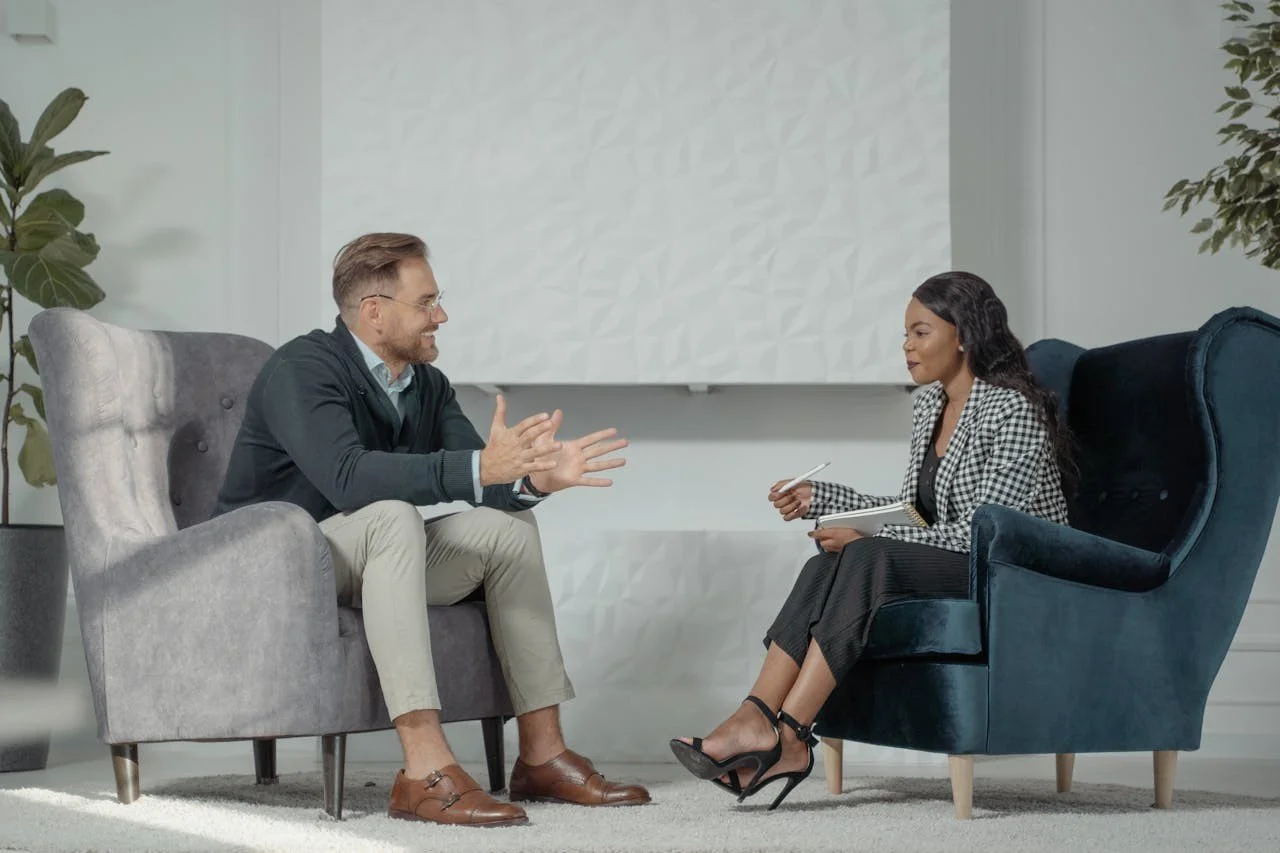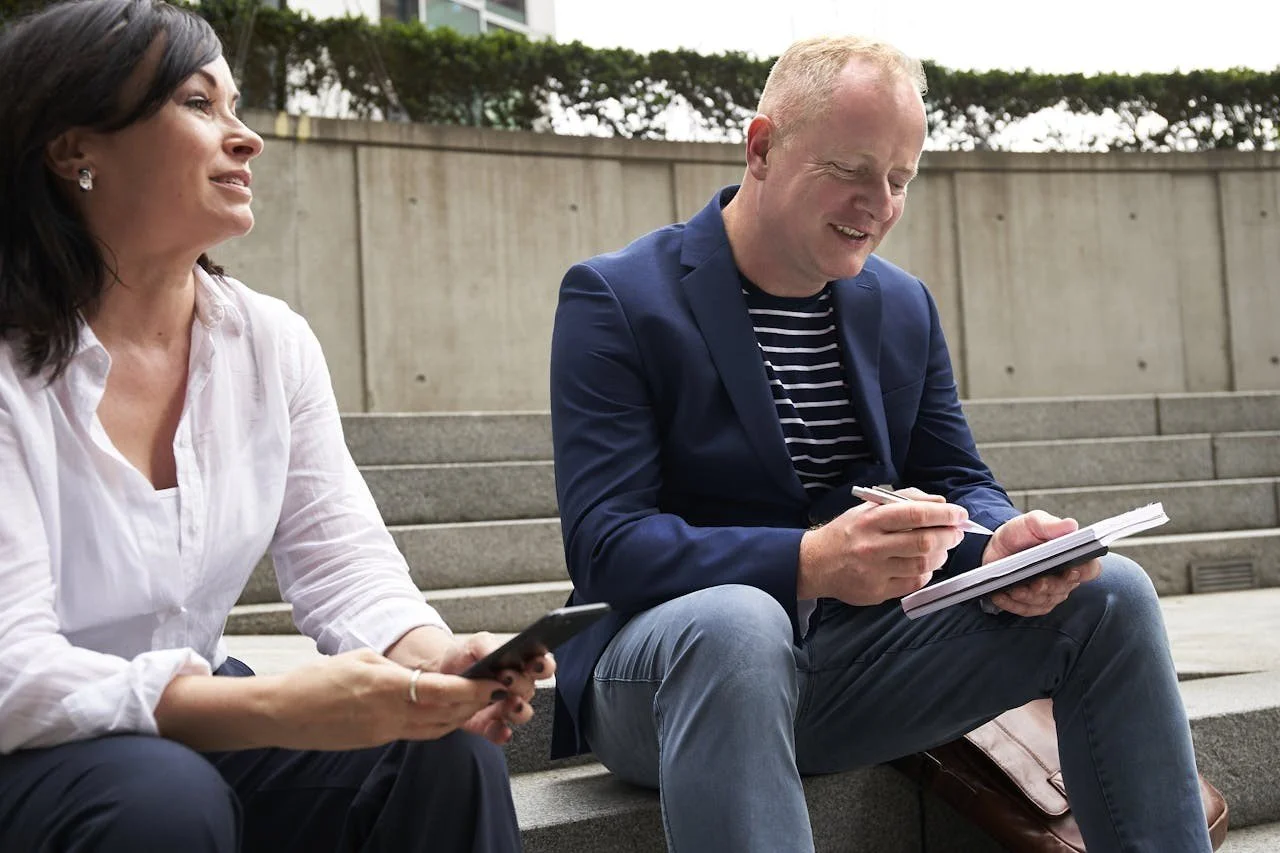The Mentor's Gift: Building Lasting Confidence in Your Legal Practice
I'll never forget standing in that courthouse bathroom forty years ago, my hands trembling slightly as I adjusted my tie for what felt like the hundredth time. Here I was, fresh from clerking for a federal judge, armed with all the academic credentials anyone could want, and yet my stomach was doing somersaults before my first solo jury trial.
The attorney across from me? One of Baltimore City's most feared and respected courtroom warriors with decades of experience. And there I was, barely out of law school, wondering if I'd completely lost my mind taking on this case.
But here's what I've learned after four decades in this profession: that moment of terror wasn't my weakness—it was my beginning. And the transformation from that scared young lawyer to someone who could confidently handle any challenge didn't happen because I was particularly brilliant or tough. It happened because some wonderful people took the time to mentor me, to believe in me when I couldn't quite believe in myself yet.
Building lasting confidence in your legal practice isn't about being fearless—it's about having the right people in your corner when fear tries to take over. And that's exactly what I want to share with you today.
The Struggle Most of Us Never Talk About
Here's something that might surprise you: some of the most accomplished attorneys I know still battle with confidence issues every single day.
When Success Feels Like a House of Cards
You know what the American Bar Association discovered? Lawyers experience psychological distress at rates much higher than other professionals. And self-doubt tops the list of what's eating us alive.
I lived this reality for years. Despite being first in my class from high school through law school, despite that prestigious federal clerkship, despite eventually winning twelve cases in a row representing trucking companies, that little voice in my head kept whispering, "You're not good enough. You're going to get found out."
Sound familiar? Here's the thing about external achievements—they're wonderful, but they don't automatically quiet that internal critic. I learned this the hard way.
The Loneliness That's Killing Our Confidence
Let's be honest about something else: practicing law can be an incredibly lonely experience. If you're solo, you're working by yourself for hours at a time. If you're in a firm, you might be surrounded by people, but everyone is so busy competing that a genuine connection feels impossible.
And we've somehow convinced ourselves that asking for help is an admission of weakness. That figuring everything out on our own is what "real lawyers" do. What nonsense! This thinking cost me years of unnecessary struggle, and I see it costing other attorneys the same thing every day.
The Perfection Prison We've Built for Ourselves
Let's take a moment to discuss perfectionism. This profession practically worships it. We're taught to examine every detail, anticipate every possible problem, and prepare for every conceivable scenario. It sounds noble, but it's impossible.
When you apply these impossible standards to yourself—when every mistake feels like proof you don't belong, when one unexpected result can shatter months of confidence—you're not pursuing excellence anymore. You're torturing yourself. And that torture doesn't make you a better lawyer; it makes you a scared one.
The Beautiful Variety of Mentorship
The beautiful thing about mentorship is that it comes in so many flavors, and each one offers something special for building absolute, lasting confidence.
The Comfort of Formal Mentorship Programs
Formal mentorship programs create something precious: structure and safety. When you know you'll meet regularly, when you both understand the goals, when there's a framework holding everything together, magic can happen.
These relationships permit you to be vulnerable, to admit what you don't know, to ask the questions you've been afraid to voice. There's something deeply comforting about knowing this support is reliable and consistent.
The Magic of Relationships That Just Click
Some of my most transformative mentoring relationships happened completely naturally. No formal program, no official arrangement—just two people who connected and decided to help each other grow.
These organic connections often feel more authentic because they're born from genuine admiration and mutual respect. When someone chooses to invest in you without any external pressure, it sends a powerful message about your worth and potential.
Learning from Your Peers
Here's something I wish I'd understood earlier: some of your best mentors are going through exactly what you're going through. Peer mentorship isn't about finding someone older or more experienced—it's about finding someone willing to figure things out together.
There's something incredibly reassuring about knowing you're not alone in struggling with a particular challenge. When a peer shares that they've also felt overwhelmed by a complex case or questioned their abilities after a tough hearing, it normalizes your experience in a way that senior attorneys sometimes can't. Their struggles feel more immediate and relatable.
Peer mentors also bring fresh perspectives, without the intimidation factor that sometimes accompanies more senior relationships. You're more likely to admit uncertainty, ask "stupid" questions, or brainstorm creative solutions when you're talking with someone who's figuring things out alongside you rather than someone you feel you need to impress.
The Co-Counsel Gift
Working closely with other attorneys on challenging cases fosters a natural mentoring environment. You're learning in real-time, sharing the pressure, and building each other up when things get tough.
One of the most rewarding experiences of my career occurred when an old law school classmate asked me to co-counsel on a complex mold damage case. We were completely different—I was methodical and detail-focused, he was dynamic and could charm any jury. At first, I wondered how we'd ever work together.
But those differences became our superpower. We complemented each other perfectly, and together we secured a verdict that was triple what we'd asked for in settlement. More importantly, we both grew as lawyers in ways we could not have done alone.
There's something special about having someone right there with you, someone who understands precisely what you're facing because they're facing it too. It makes you braver, smarter, and more confident than you'd ever be on your own.
What Mentors Give You
Real mentorship goes so much deeper than just sharing legal knowledge—it's about the stuff that law school never teaches you.
A New Way to See Failure
Early in my career, I had what felt like a devastating loss. I'd won a workers' compensation retaliation case—the jury gave me everything I asked for. Then the judge took it all away, saying there wasn't enough evidence to support the verdict.
I was crushed. Absolutely crushed. But a mentor helped me understand something that changed everything: this kind of thing happens in our profession, and it says nothing about my abilities as a lawyer. Sometimes the system works in ways that feel unfair or inexplicable, but that doesn't mean I did anything wrong.
That perspective saved me from spiraling into self-doubt that could have lasted years.
Permission to Be Human
Here's what great mentors do: they permit you to be imperfect while still being excellent. They help you understand that competence doesn't require perfection, that making mistakes is how we learn, not evidence that we don't belong.
This permission is especially powerful in a profession that often feels unforgiving. When you stumble during a deposition or miss a deadline, a mentor helps you see it as part of your professional development rather than proof of inadequacy. They share their own mistakes and failures, showing you that even successful attorneys have made similar errors.
The relief of knowing you don't have to be perfect is transformative. It frees up mental energy you've been wasting on self-criticism and redirects it toward learning and growth. With this permission comes the confidence to take on challenging cases, knowing that imperfect execution is still a valuable experience.
Someone Who Believes in You
Sometimes, the most powerful thing a mentor can do is validate your experience and potential. When you're second-guessing every decision, when you feel like you're in over your head, having someone you respect tell you that your instincts are good and your contributions matter—that's gold.
This validation isn't empty cheerleading. It's someone with experience who recognizes something genuine in you and reflects it back to you so that you can see it too.
A Safe Place to Be Real
Perhaps most importantly, mentors provide something that's often missing in our competitive profession: a safe space where you can be completely honest about your fears, doubts, and struggles without judgment or professional consequences.
Having someone who understands the unique pressures we face, someone who can listen without trying to fix everything or judge you for being human—that creates the emotional safety that real growth requires.
A Vision of What's Possible
Mentors help you see beyond where you are right now. They share stories of their growth, introduce you to opportunities you hadn't considered, and encourage you to take the kind of calculated risks that lead to real professional expansion.
Without mentors pushing me to imagine bigger possibilities, I might never have taken on those complex federal cases that became my specialty or developed the confidence to eventually help other lawyers the way I'm helping you right now.
Someone Who Holds You Accountable
Here's something that might surprise you: one of the most valuable things a mentor can do is lovingly call you out when you're not living up to your potential. They see through your excuses and self-limiting beliefs because they've been where you are.
When I told a mentor I wasn't ready for a particular opportunity, he didn't just nod sympathetically; he listened. He asked pointed questions that helped me realize I was letting fear masquerade as prudence. That gentle but firm accountability pushed me to take action that I might have delayed for years. Sometimes, we need someone we respect to remind us that we're stronger and more capable than we think we are.
Finding Your People
The secret to outstanding mentorship isn't finding the most accomplished person willing to talk to you—it's finding the right fit for who you are and where you're trying to go.
Getting Clear on What You Need
Before you start looking for mentors, take some time to honestly assess what kind of support would make the most significant difference in your practice. Do you need help with technical skills? Client relations? Managing anxiety? Building your business?
Understanding your specific needs helps you identify mentors whose strengths align with your growth goals. This clarity makes the relationship more productive for both of you.
Looking in Unexpected Places
The best mentors aren't always the obvious choices. Sometimes it's a younger attorney with fresh perspectives, someone in a completely different practice area who offers valuable insights, or a retired practitioner who has wisdom without competitive concerns.
Think about attorneys whose approach you admire, whose values align with yours, whose careers reflect something you'd like to create. Age and years of practice matter far less than wisdom, generosity, and genuine compatibility.
The Power of Different Styles
When I joined Huesman, Jones, and Miles, I was blessed to be mentored by two extraordinary lawyers who couldn't have been more different from each other.
Dick Lerch was an incredible trial attorney—sharp as a tack, yet with a gentle, unassuming way about him. He could connect with juries and judges in this warm, human way, which was beautiful to watch. Dick taught me about humility, about the power of genuine warmth, about being present with people.
Joe Huesman was an ex-Marine who'd survived the brutal Battle of Chosin Reservoir in Korea. He was strong, courageous, and fearless when it came to fighting for his clients. Joe taught me about courage and commitment, about not worrying what other people think when you know you're doing right.
These two men gave me completely different gifts—Dick's gentle humanity and Joe's fierce courage—and together they provided a foundation that has carried me through four decades of practice. I needed both perspectives to become the lawyer I was meant to be.
How to Be an Amazing Mentee
Getting the most out of mentorship relationships requires specific skills that many of us never learned.
Receiving Feedback Like a Champion
Learning to hear criticism without getting defensive might be one of the most valuable skills you can develop. In our profession, we're trained to argue and defend, but that instinct can sabotage learning opportunities.
The best mentees approach feedback with curiosity instead of defensiveness. They ask follow-up questions, seek specific examples, and view criticism as valuable information rather than personal attacks. This openness accelerates growth and strengthens the relationship.
Asking Questions That Matter
The quality of your questions determines the value you get from mentorship. Instead of looking for simple answers, ask questions that reveal how your mentor thinks, makes decisions, and approaches challenges.
Try questions like "How do you handle cases where the facts seem stacked against you?" or "What would you do differently if you were starting over today?" These generate insights that go far beyond technical knowledge.
Creating Clear Expectations
Successful mentorship requires clear communication about what each party wants from the relationship. How often will you meet? What are you hoping to achieve? What are the boundaries?
This clarity prevents misunderstandings and ensures the mentorship stays productive and sustainable. It also shows respect for your mentor's time and investment in you.
Following Through Like a Pro
The gap between receiving advice and implementing it often determines whether mentorship transforms your practice or just makes you feel good temporarily. Develop systems for tracking guidance, creating action plans, and reporting back on your progress.
This follow-through demonstrates respect for your mentor's investment and fosters accountability, which accelerates your growth. It also provides your mentor with feedback on which guidance proves most valuable.
Your Moment of Choice
Forty years ago, I stood in that courthouse bathroom, battling the voice that told me I wasn't ready. Today, I understand that the confidence I desperately sought wasn't something I had to earn through perfect performance—it was a gift waiting to be received through the wisdom and care of people who had walked this path before me.
Dick Lerch's gentle strength and Joe Huesman's fierce courage gave me something no law school could teach: the confidence to be fully myself while serving my clients with excellence. But their gift didn't end with me—it created ripple effects that continue touching lives they'll never meet.
Currently, you face the same choice. You can continue wrestling with isolation, self-doubt, and perfectionist pressure. Or you can choose to receive the mentor's gift.
Your journey toward unshakeable confidence begins with a straightforward step: acknowledging that you don't have to walk this path alone. Somewhere in your community right now, there's an attorney whose experience can guide your growth, whose support can transform your entire relationship with your practice.
And someday—perhaps sooner than you imagine—you'll become that person for someone else. You'll share hard-won wisdom, offer encouragement during dark moments, and watch as your guidance helps another attorney discover their confidence and capability.
This is the mentor's gift: it multiplies when shared, grows stronger when given away, and creates value that extends far beyond individual careers. It transforms not just attorneys but our entire profession, one relationship at a time.
You don't have to wonder if you're worthy of this gift—you absolutely are. The only question is whether you're ready to accept it, act on it, and eventually pass it on.
Your career, your clients, your future mentees, and this profession we all love are waiting for your answer.
Would you like to discuss how mentorship can benefit you? You can schedule a courtesy call here.





